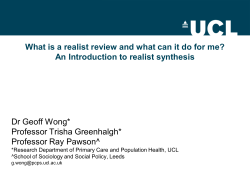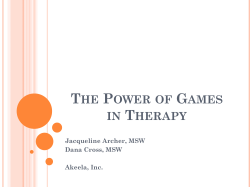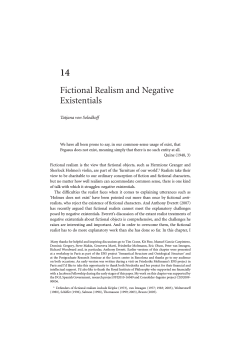
Does therapeutic writing help people with long term
Does therapeutic writing help people with long term conditions? Systematic review, realist synthesis and economic considerations Meads C1 Nyssen OP2, Wong G2, Higgins A1, Steed L2, Bourke L2, Ross CA3, Hayman S4, Field V5, Lord J1, Greenhalgh T2, Taylor SJC2 1 Health Economics Research Group, Brunel University 2 Centre for Primary care and Public Health, Barts and The London School of Medicine and Dentistry, Queen Mary University of London 3 Cumbria Partnership NHS Foundation Trust 4 Medical Foundation for the Care of Victims of Torture 5 Freelance experienced therapeutic writing practitioner Background: Long-term medical conditions (LTCs) cause reduced health-related quality of life and considerable health service expenditure. Therapeutic writing (TW) has potential to improve physical and mental health in people with LTCs, but its effectiveness is not clear. The aim of this project is to establish the clinical and cost-effectiveness of therapeutic writing in LTCs, and to evaluate context and mechanisms by which it might work, through realist synthesis. Research findings are compared to the UK clinical experience of therapeutic writing practitioners. Systematic review Results: We included 63 clinical trials and one observational study. Most were conducted in USA and assessed adults patients. Studies had up to 507 participants, but ~half included fewer than 50 patients in each arm. Only five were in facilitated writing, many used either standard emotional disclosure writing1 or an adapted version. Other TW types included positive writing, enhanced meaning writing, song, poetry and Internet chat forums. Studies reported mainly psychological, physical and quality of life outcomes, with 172 instruments used and more than 300 different outcome measures reported. Follow-up was mostly between 1-3 months. Studies were categorised by facilitated/ unfacilitated TW then by ICD-10 code. Most frequently investigated were breast cancer (8 studies) and HIV (6 studies). Synthesis: Very few meta-analyses were possible because of heterogeneity. The forest plot on depressive symptoms in any LTC up to 17 weeks suggests no significant difference for TW compared to controls. Methods: Selection of studies: any comparative study in any language of TW compared to no writing, waiting list, attention control or placebo writing in patients with any diagnosed LTCs reporting at least one of the following; relevant clinical outcomes; quality of life; health service use; psychological, behavioural or social functioning; adherence or adverse events. Search strategy: to January 2015 in 22 medical databases (including Medline, Embase, PsychInfo, The Cochrane Library and Science Citation Index) and for the realist review further purposive and iterative searches through snowballing techniques. Data synthesis systematic review: narrative and tabular with meta-analysis where 3 or more studies reported the same outcome. Realist review: RAMESES methodological standards were followed to extract and test middle-range theories about the links between context, mechanisms and outcomes. Programme theory was developed and refined through consultation with TW practitioners and from data in included studies. Extensive consultation with TW practitioners was conducted. De novo economic modelling was not possible due to lack of information – costs and resource use were estimated. Realist review Two distinct TW models were identified: • For unfacilitated (individual) TW, the main mechanisms and contexts were difficult to clarify as specific theoretically-derived variables were usually not tested within the studies - unfacilitated TW was treated like a ‘black box’ . It was unclear as to why participants would have wanted to do this or what they would gain from it. • For the facilitated (group) TW, the mechanisms were complex, involving the forming of relationships and the group acting as an audience for personal narratives. It did not treat TW as a standard, onesize-fits-all intervention but let participants engage in different ways and at different times with the group and the writing activity, in a way that suited them. Economic considerations No full economic evaluations were found. Nine studies reported on resource use, covering a wide range of disease areas and populations. Meta-analysis of health centre visits is shown below: Reference: 1. Pennebaker J, Beall SK. Confronting a traumatic event: Toward an understanding of inhibition and disease. Journal of Abnormal Psychology 1986;95(3):274-81 Conclusions: Effectiveness of emotional disclosure TW interventions in LTCs is not so clear as would have been expected from reading textbooks about this intervention. Most interventions evaluated did not mirror those currently used by professional TW practitioners in clinical practice. Further research is needed that evaluates interventions employed in clinical settings, using cluster RCT or stepped wedge designs. Funding Acknowledgement: This project was funded by the National Institute for Health Research HTA programme (project number 11/70/01) Department of Health Disclaimer: The views and opinions expressed therein are those of the authors and do not necessarily reflect those of the HTA programme, NIHR, NHS or the Department of Health.
© Copyright 2025














